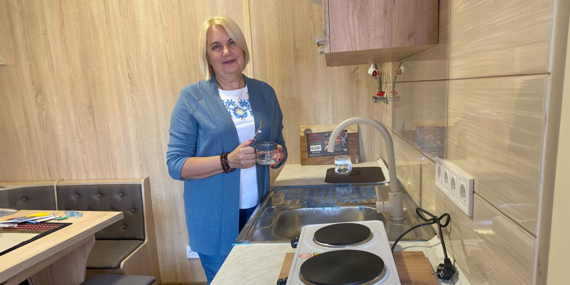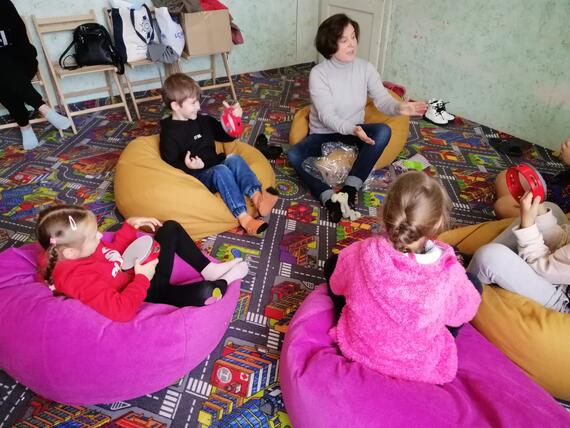Ukraine: “I taught my students from the bomb shelter"

By Nataliia Pushkaruk, Ukraine
When the war in Ukraine escalated in February 2022, Nadiia faced it with courage and strong dedication to her profession. Even while sheltering in her basement during the relentless missile attacks, this brave woman continued to teach her students online.
She explained: “It was very cold and humid in the basement, but it was the only way to survive. We were almost living in there.”
For five harrowing months, Nadiia and her seriously ill and disabled mother suffered the horrors of the full-scale war. Unable to cope with the deteriorating living conditions and constant security threats, the women were evacuated from Kharkiv to Svaliava, western Ukraine. But tragically, just three days after they finally reached safety, Nadiia’s mother passed away.
Nadiia now lives in the collective site for displaced people in Svaliava, together with her daughter, who is also a teacher. She continues teaching English and philosophy.
“I also participate in international webinars, seminars and conferences,” Nadiia explained.
Nadiia can do all this thanks to a new information complex at the collective site, created by local NGO Proliska Humanitarian Mission with support from the Ukraine Humanitarian Fund. The facilities in the new complex enable Nadiia and her daughter to continue teaching their students remotely.
Within the new complex, Proliska installed eight laptops, a multifunctional printer with Internet connection, and essential office furniture. The facility is proving to be incredibly useful for the 100 internally displaced people who live at the collective site, especially considering that 30 of those residents are children of various ages.
Children and adults can now organize various online educational activities, including distance learning, online courses, video lectures and conferences. The new facility also gives residents access to psychological and medical support, consultations on social and legal issues, and social support services provided by mobile teams from NGOs and local authorities.
“A lot of internally displaced people asked us to set up this information centre,” said a Proliska team member. “Now, a lot of children have an opportunity to continue studying online, and adults are working remotely. It opens up a lot of opportunities for people. They are very grateful for this assistance.”

With its daily air-raid alarms, shelling, attacks, bombings and displacement, the Russian Federation’s war against Ukraine is severely affecting people’s access to education in Ukraine. Government data reveals that at least 360 educational institutions have been destroyed, and around 3,400 are damaged. Humanitarians continue to make every possible effort to help children access education, and to provide teachers with the necessary resources to carry out their work, as education is the pathway to the future.
Nadiia added: “Children love to learn and play here, and to attend art and music therapy sessions. In the past two years they’ve lived through a lot.”
